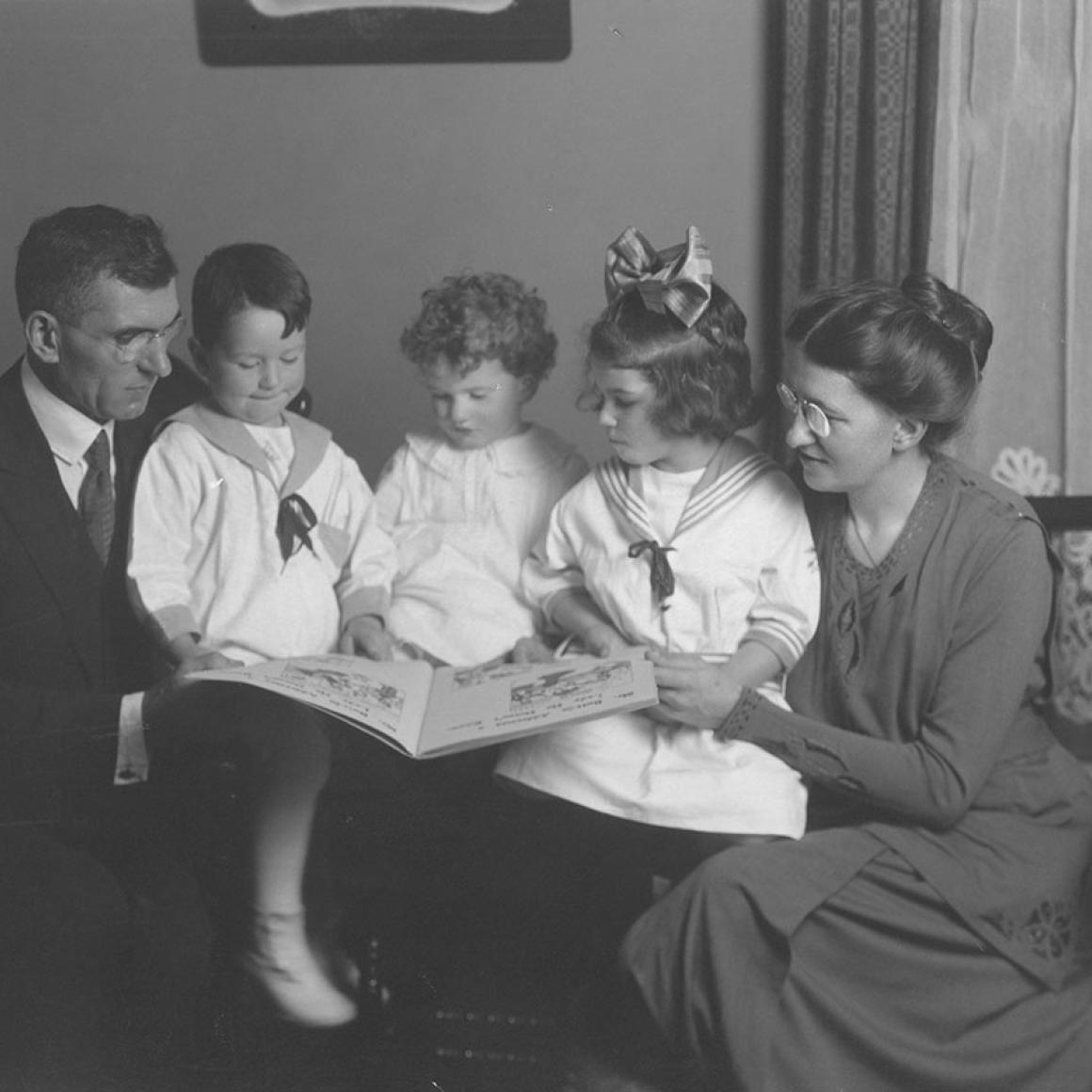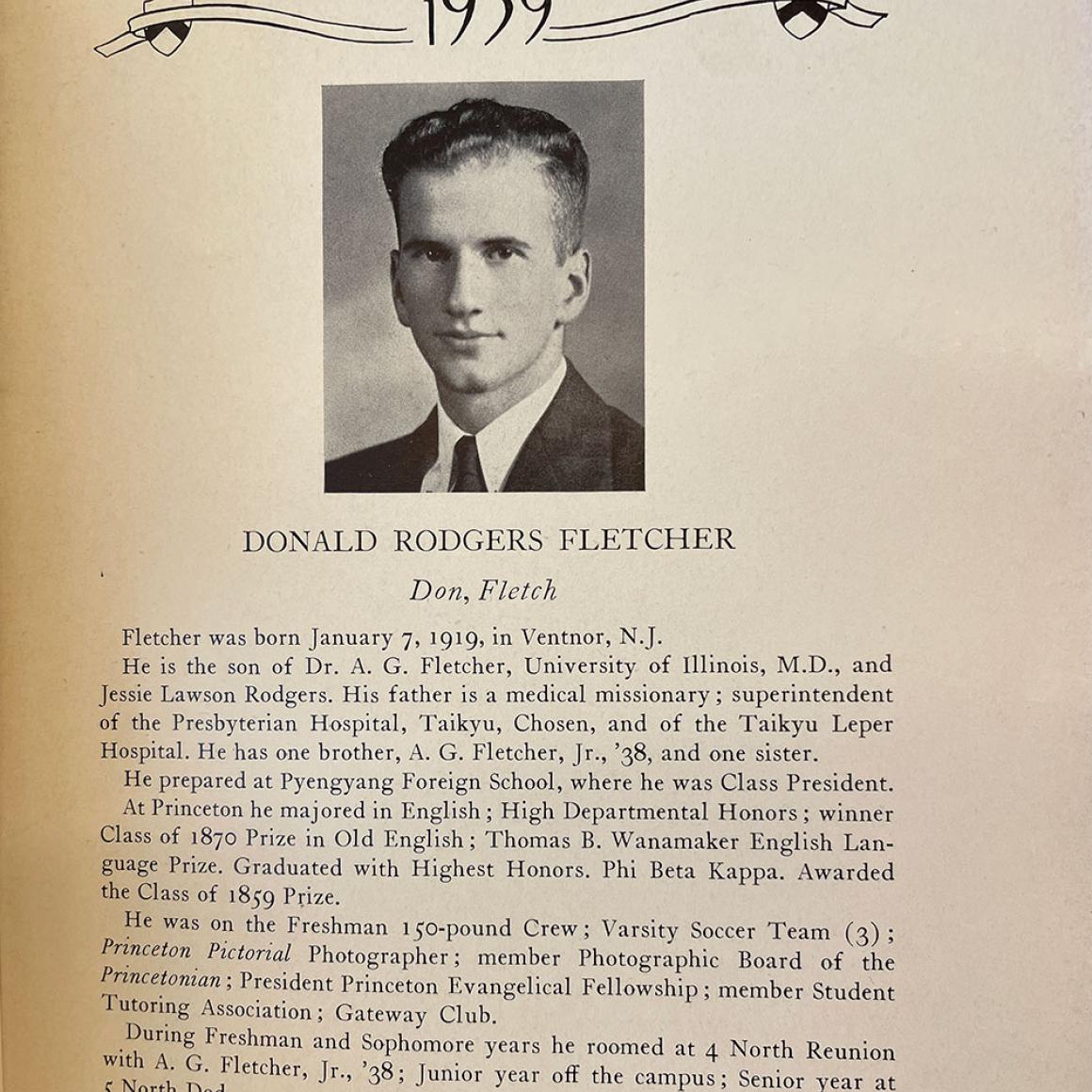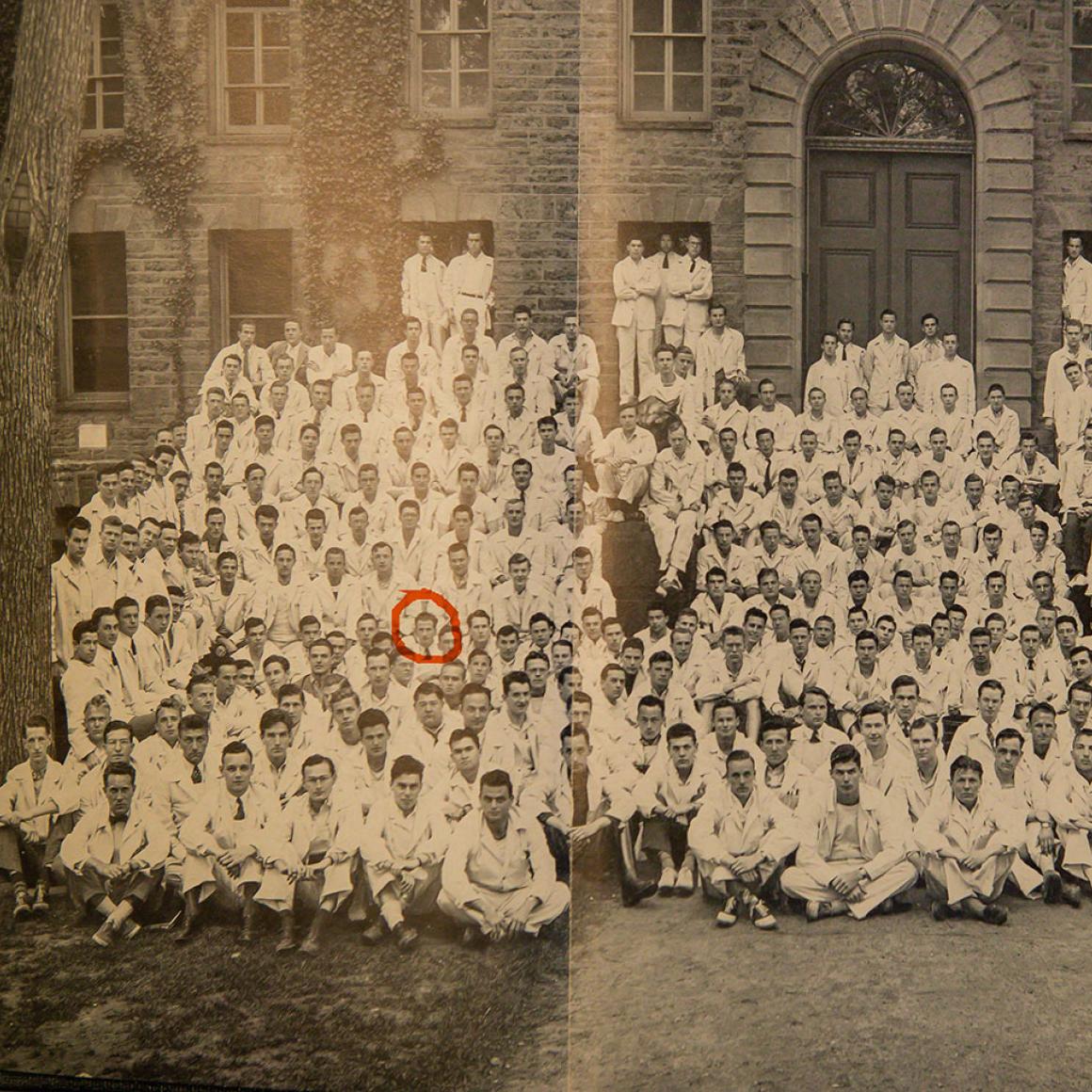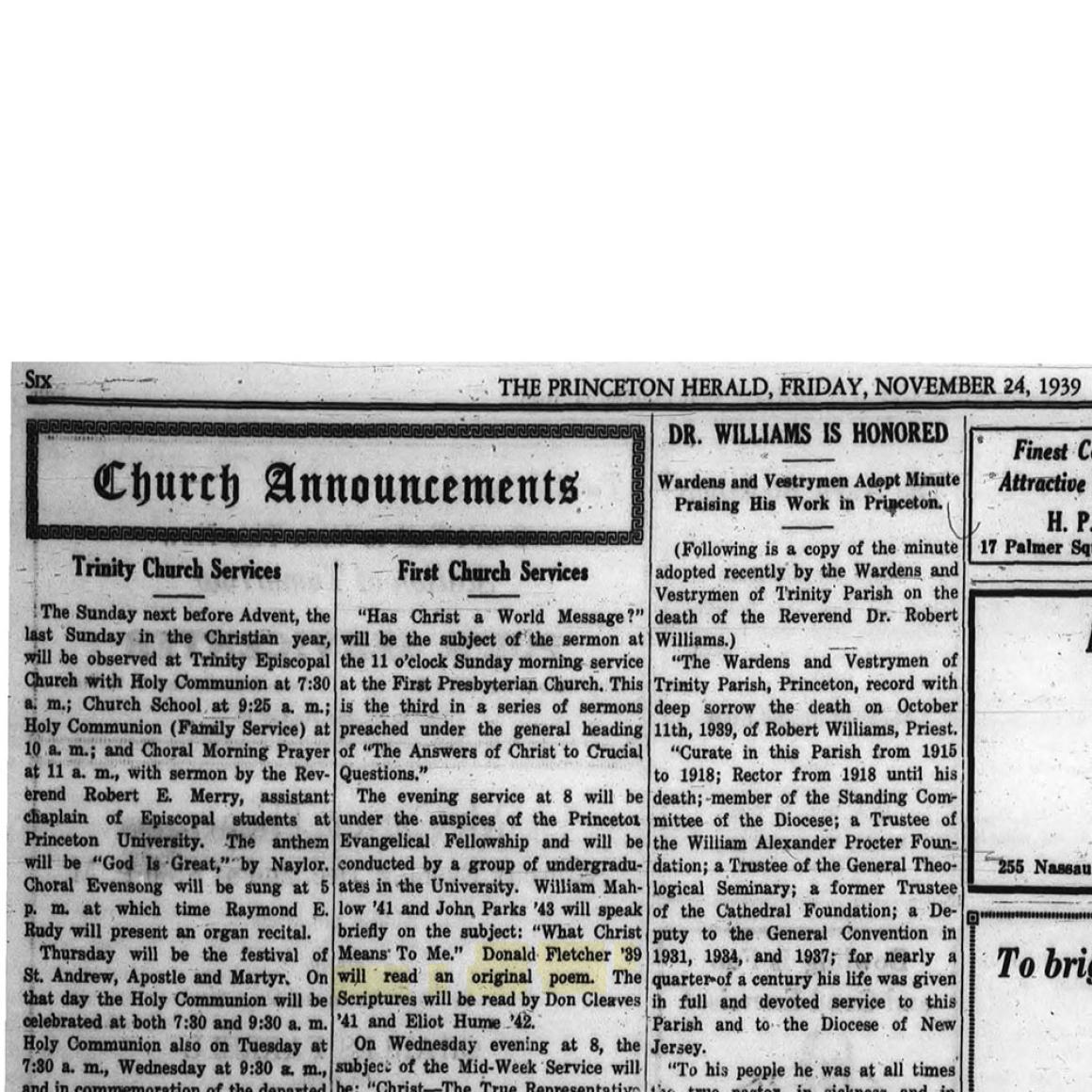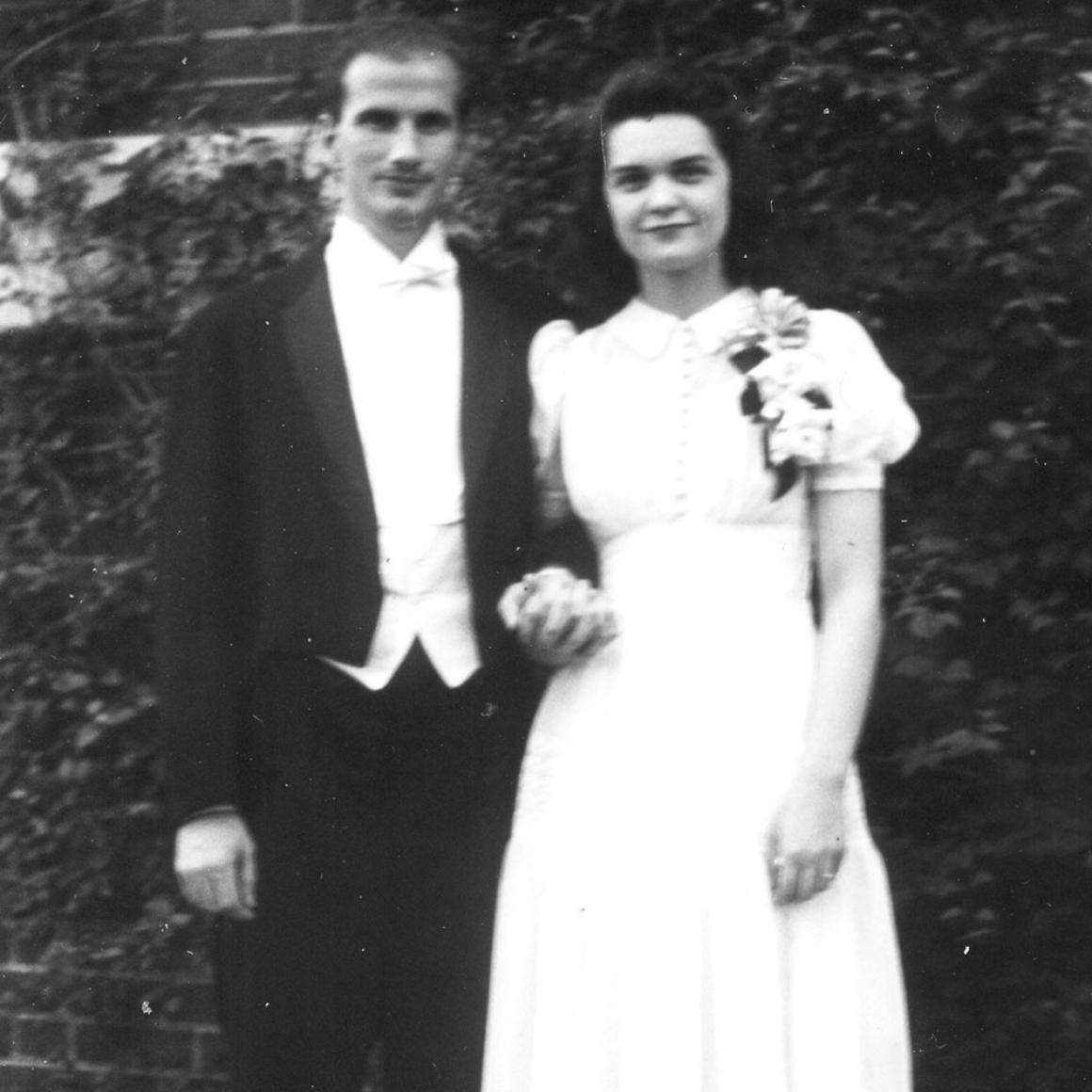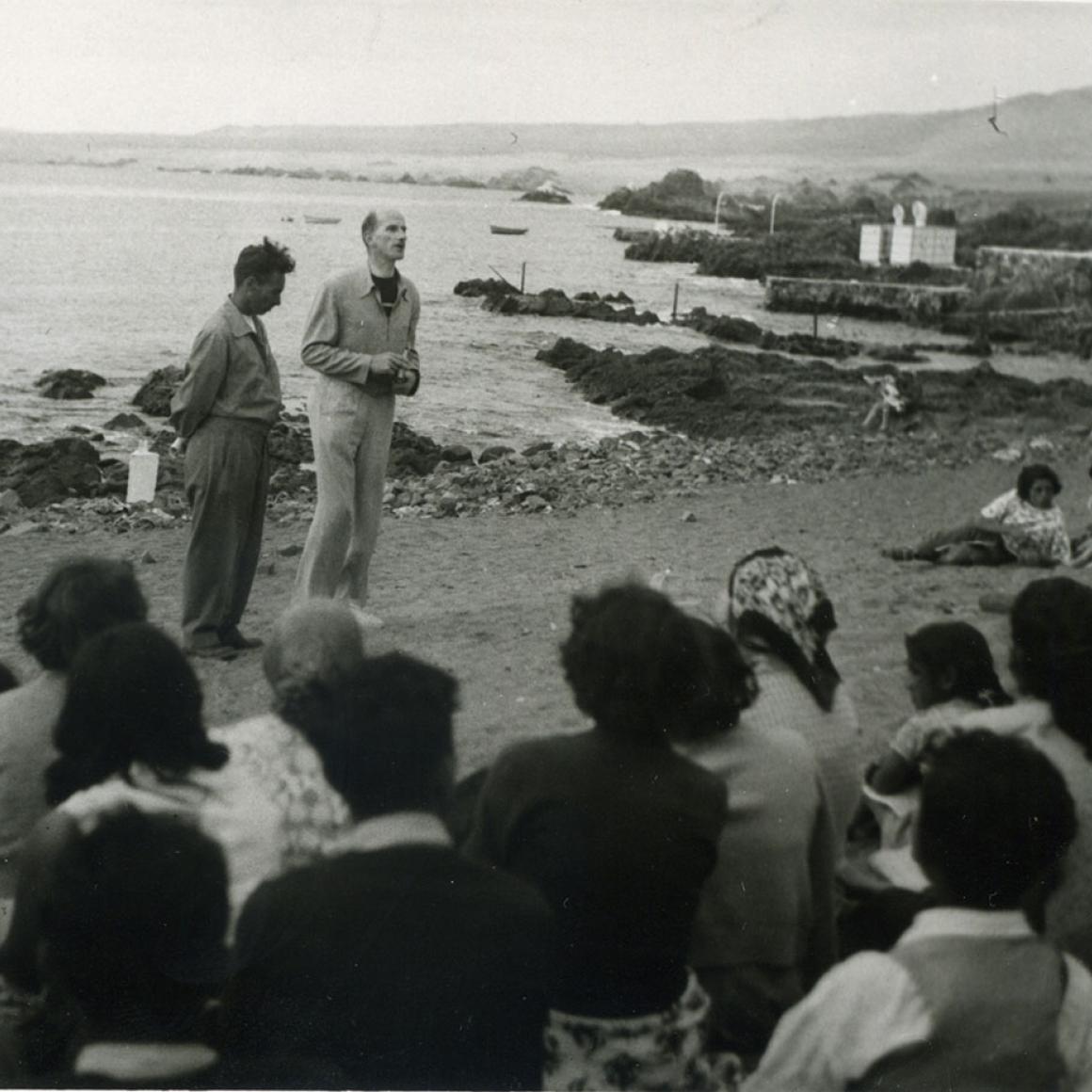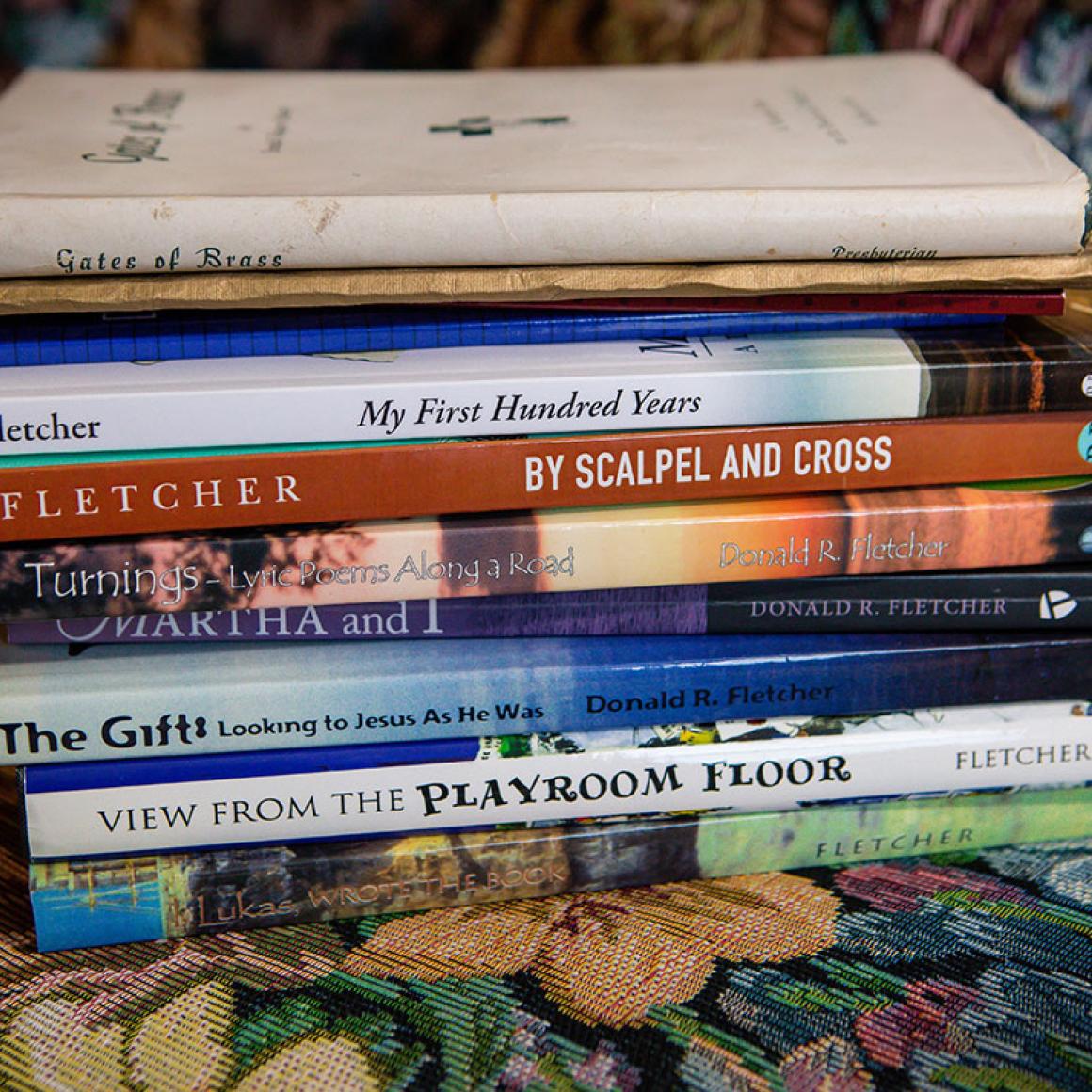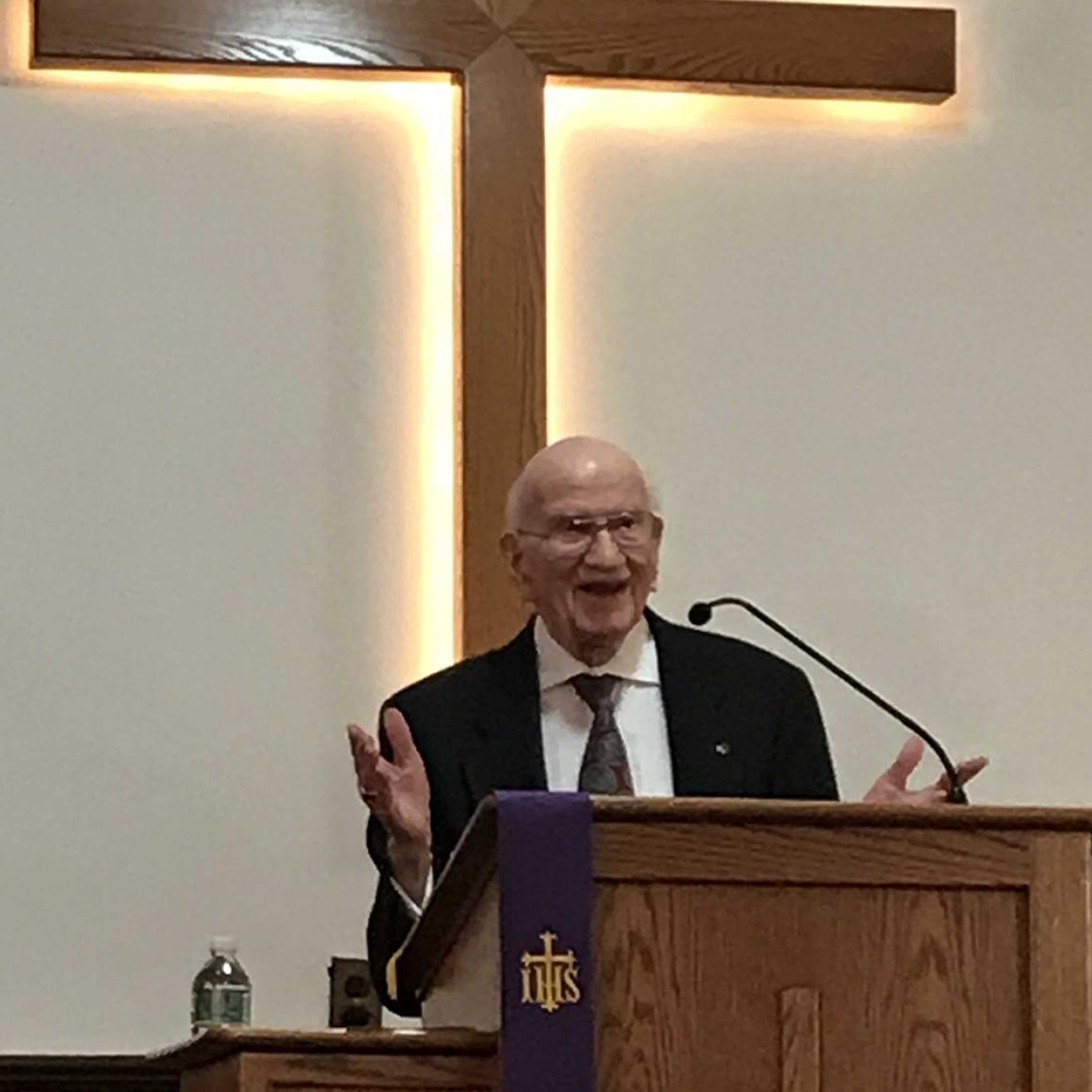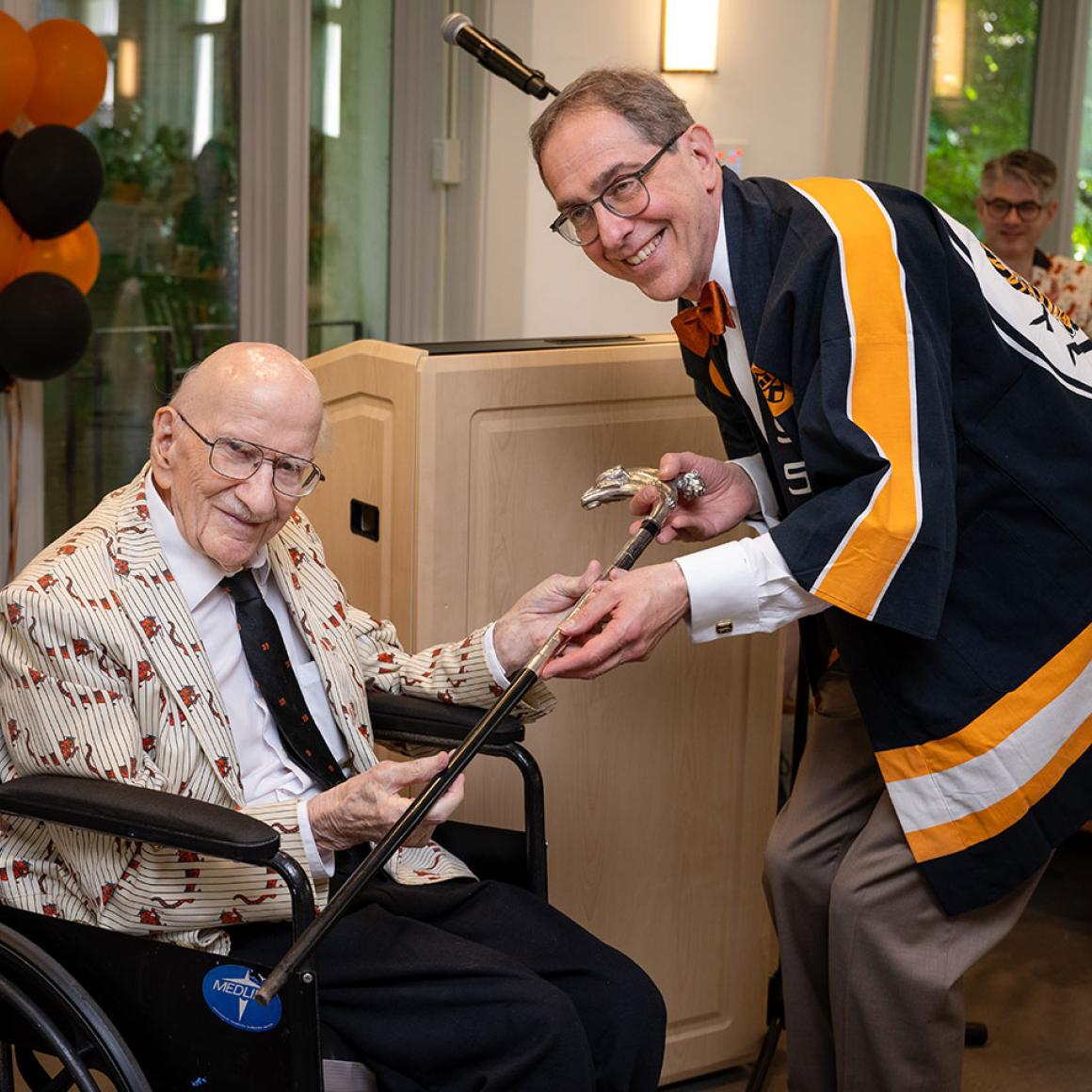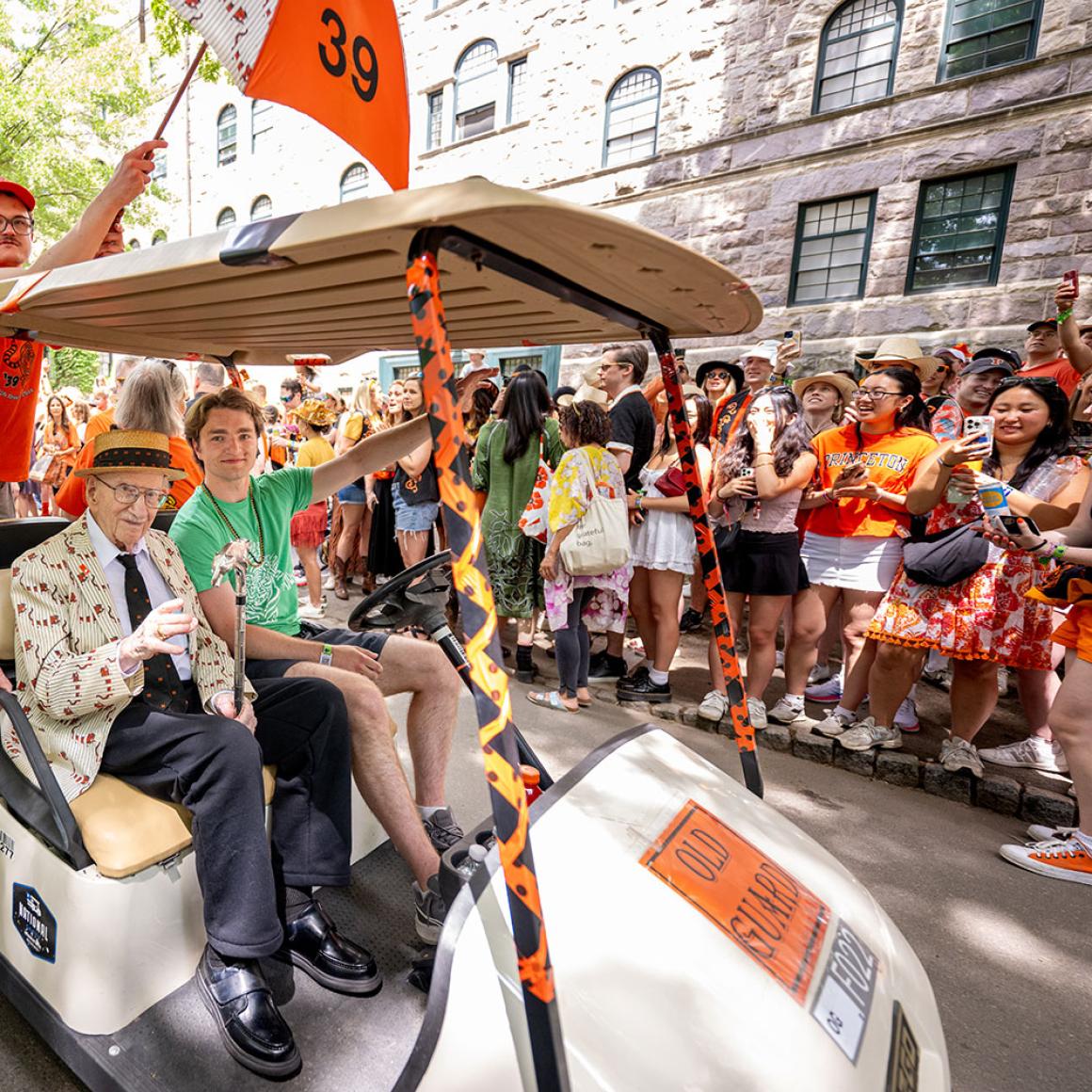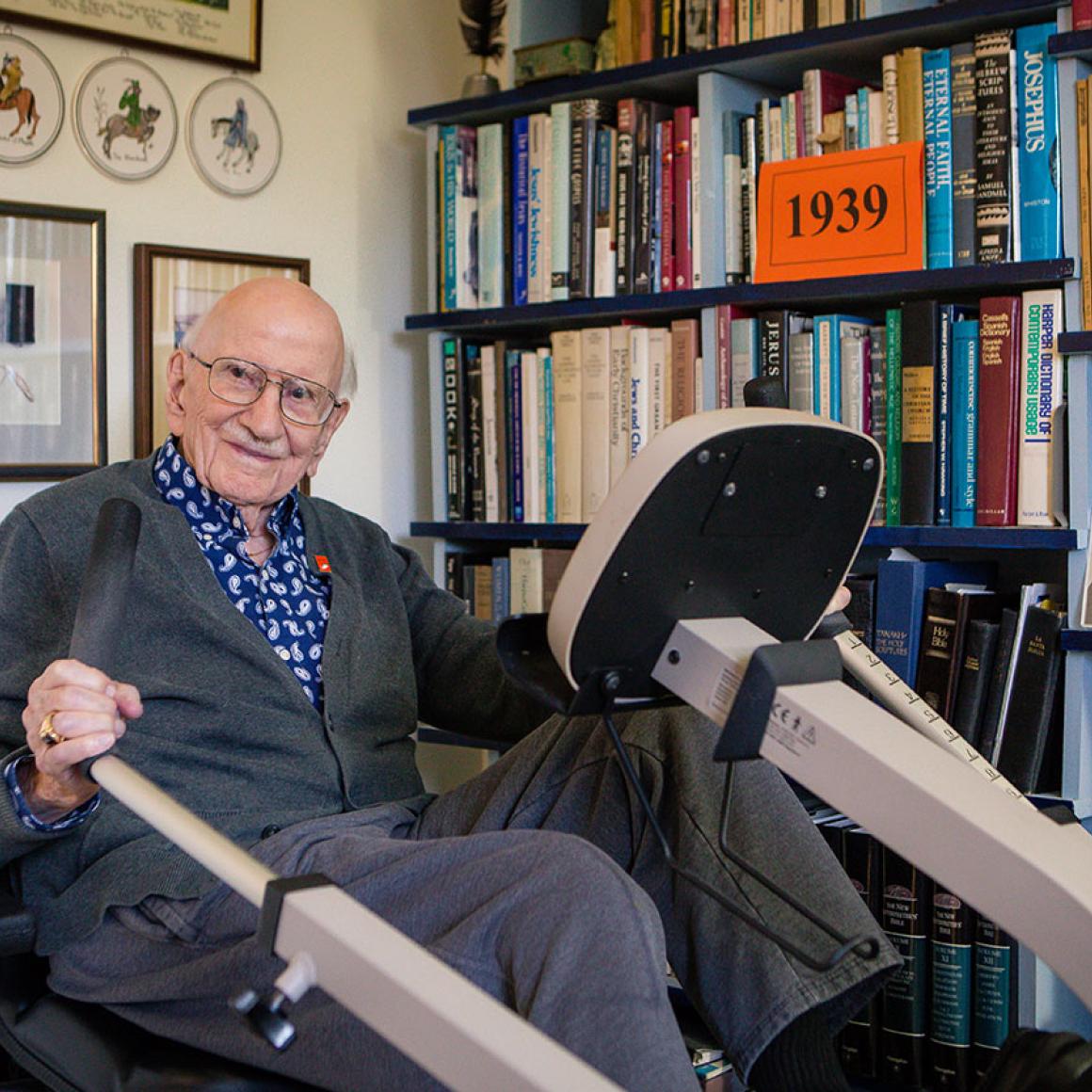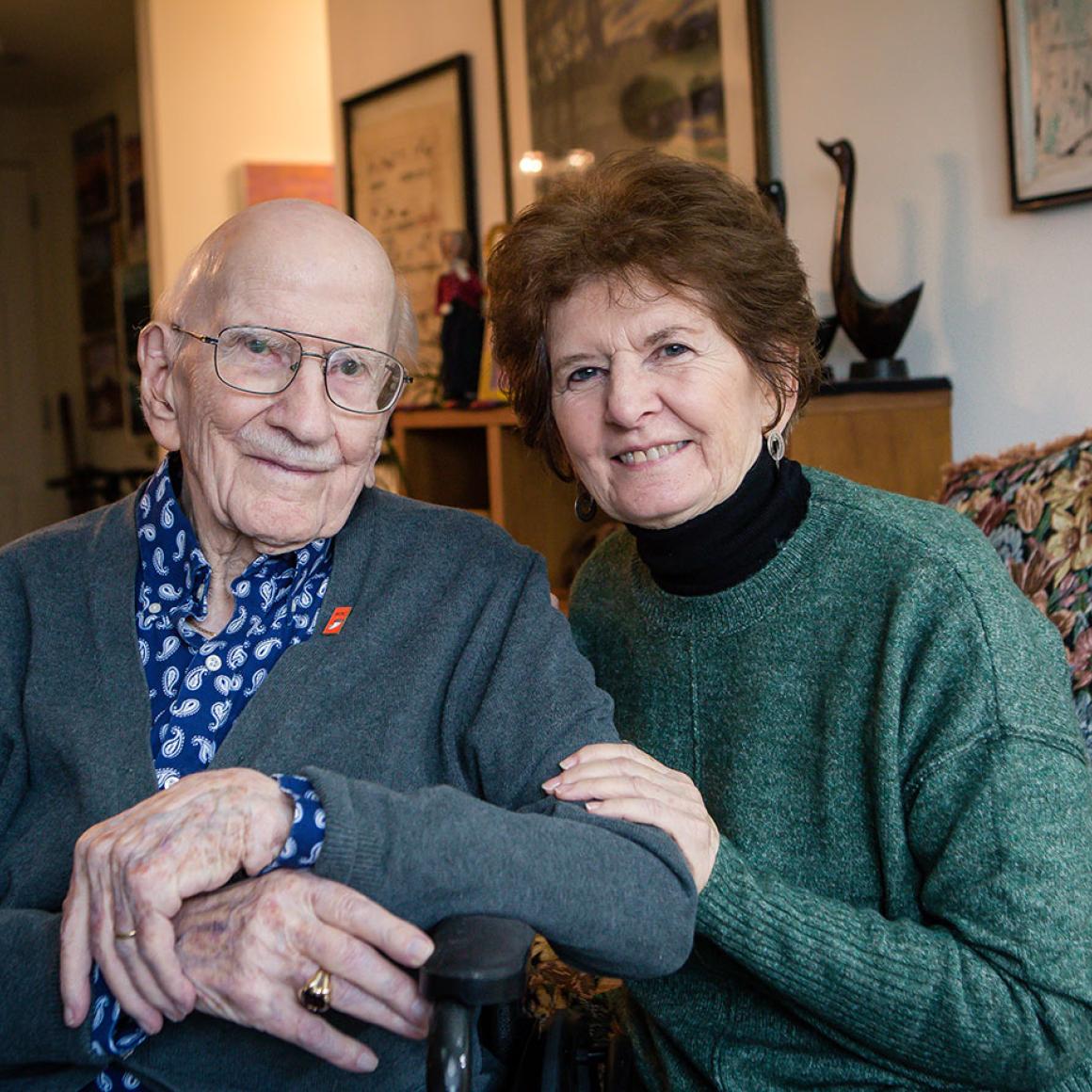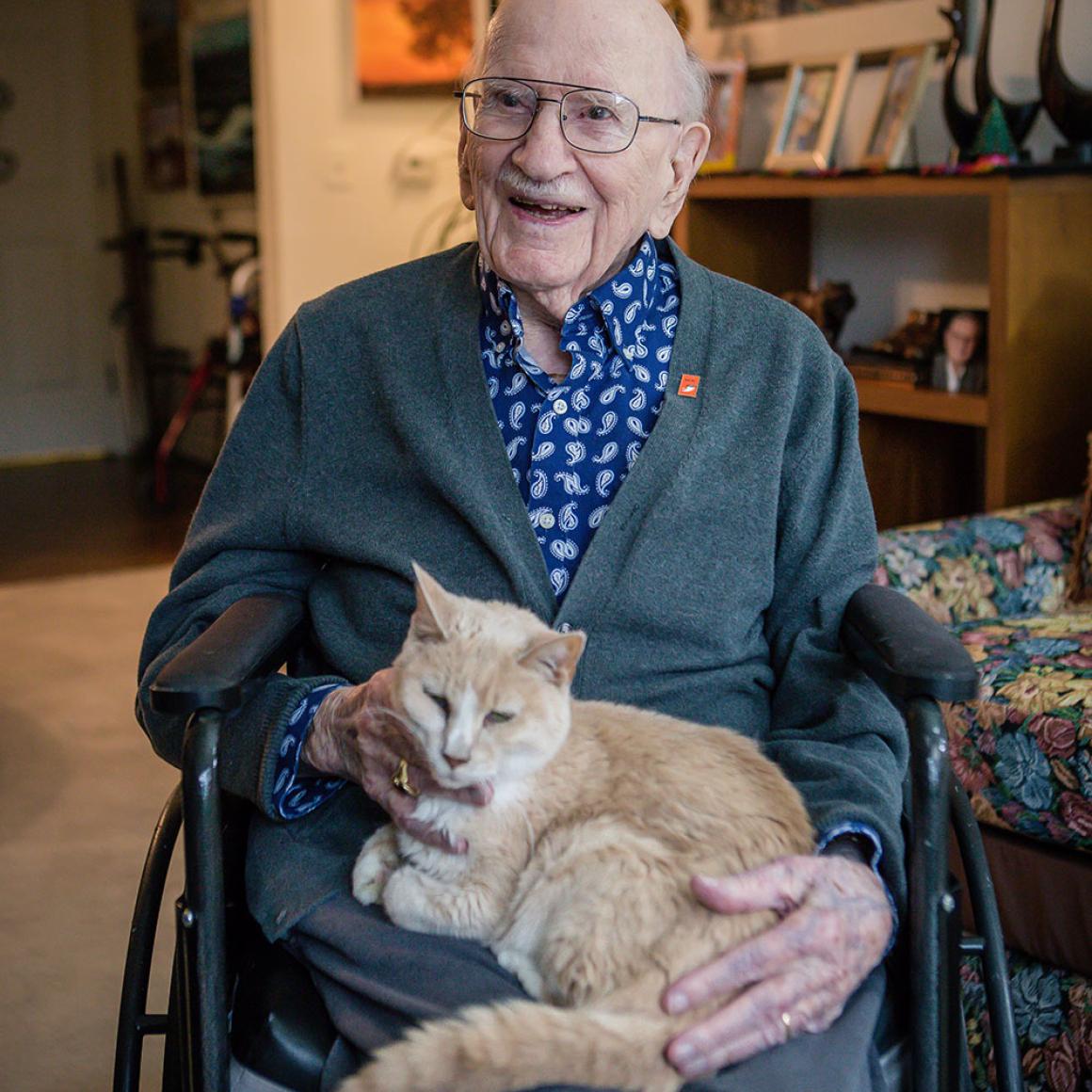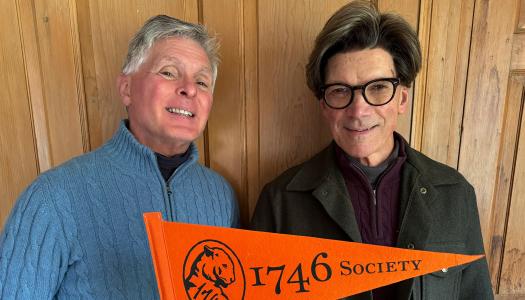Happy 106th birthday, Donald Fletcher ’39 *51
10.6 things every Tiger needs to know about Fletch
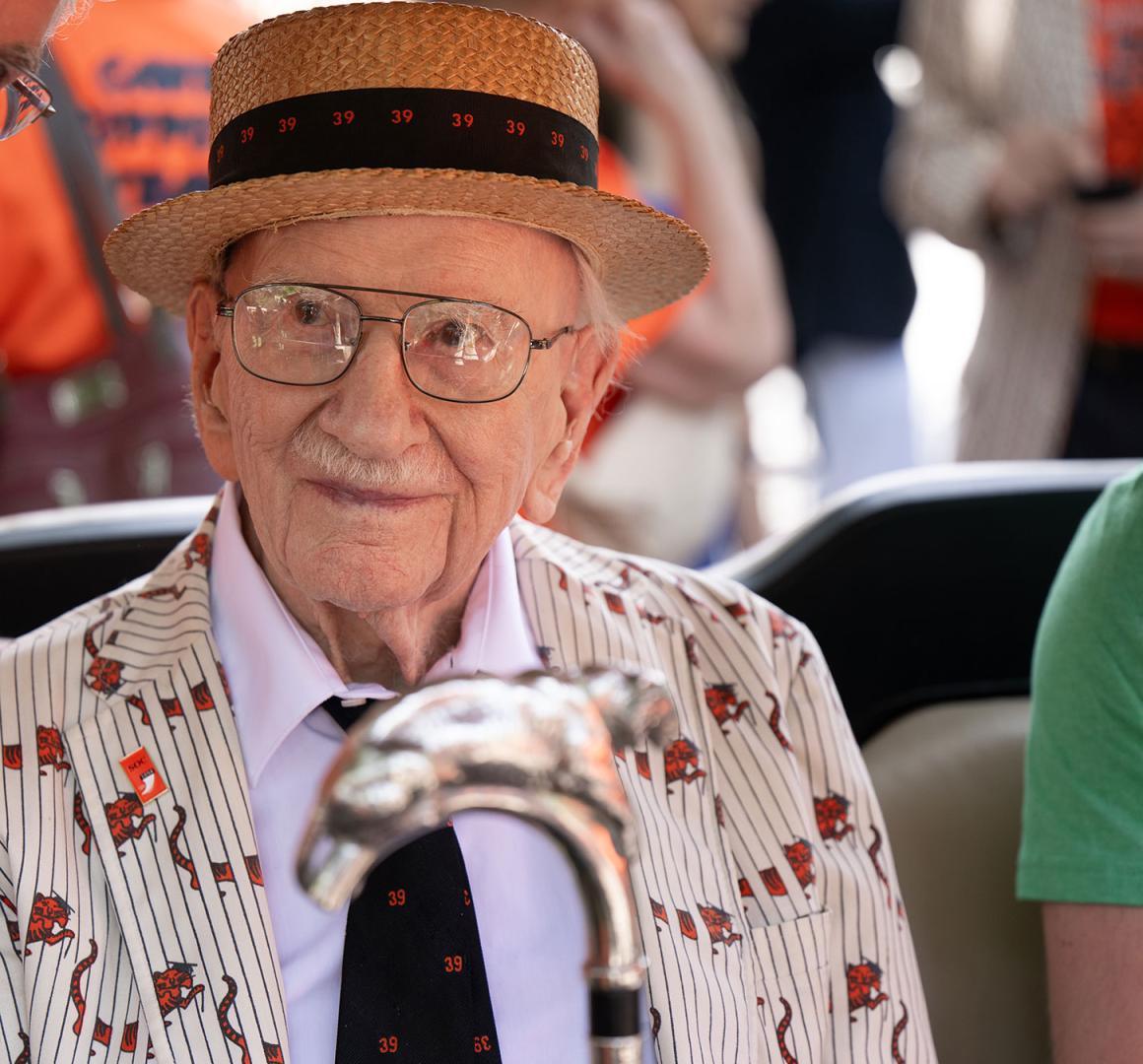
Photo by Sameer Khan/Photobuddy
It certainly wasn’t Donald Fletcher ’39 *51’s first P-rade. But on a sunny Reunions Saturday afternoon in May 2024, it was the first time Fletcher — or Fletch, as he was known to his classmates — would lead the tradition.
In a luncheon for the Old Guard at Forbes College earlier that day, President Christopher L. Eisgruber ’83 had presented Fletcher with the Class of 1923 Cane, awarded to the oldest alum in the oldest Reunions class represented at the event. The cane, topped with its distinctive silver crouching tiger, now bore Fletcher’s name, joining the legacy of those who shared the honor of carrying it since 1951.
Surrounded by his family in orange T-shirts that read “Don Fletcher ’39 Carrying the Cane 85th Reunion” on the front and “Cane Support Team” on the back, Fletcher rode through the parade route in a golf cart, smiling as thousands of alumni and friends cheered him on. In his cream class jacket with black stripes and whimsical tigers, sporting a black tie dotted with subtle orange 39s and a straw boater with a hat band in the same 39-patterned material, Fletcher was a study in dapper dignity in a carnival of exuberant Tiger spirit. “It was a great thrill,” Fletcher said. “A wonderful experience.”
Today, Jan. 7, 2025, is another milestone — Fletcher’s 106th birthday.
To celebrate the occasion, we visited him at his New Jersey home to learn more about the man behind the mustache. Here, we offer 10.6 things every Tiger needs to know about Don Fletcher.
1. Magnolia Memories
Fletcher’s first visit to Princeton came in 1928, when he was 9 years old. It was also, other than his birth and infancy, his first time in the United States. The Fletcher family was on furlough from his father’s medical missionary work in Korea, where Fletcher and his two older siblings, Elsie and Archie, were raised. The family lived in an apartment in Payne Hall on Alexander Street, across from the Princeton Theological Seminary, and Fletcher attended sixth grade in town. He remembered those years in his 2019 memoir: “I could loiter, to admire carved tigers on a stone gateway … All of this was new, as so much else about suburban life in the United States.” When the campus bloomed that spring, he was entranced by “large, delicately transient magnolia blooms.”
2. Inspiring Environs
The year living in the University environs also had an impact on his father. “My dad decided he wanted his sons to go to Princeton,” Fletcher said. “He, of course, had never had the college experience. At his stage, one could go directly into medicine with high school training.” Archie, one year older, graduated with the Great Class of 1938.
3. Travels with Samson and Hercules
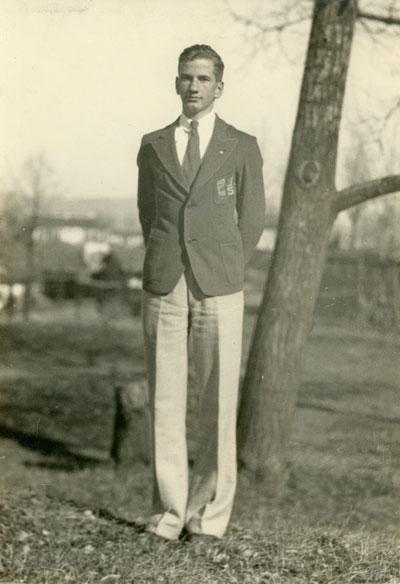
Fletcher left Korea for Princeton at the age of 16, and getting there was an adventure, starting with a 6,000-mile trip on the Trans-Siberian Railway. The ride cost the equivalent today of “70-some dollars,” departing from the Manchuria-Siberian border and ending in Warsaw, Poland. “That’s like going from Philadelphia to San Francisco and back again,” he said. Lugging two enormous bags he’d dubbed Samson and Hercules, Fletcher traveled through Europe with three other boys his age before boarding a ship in England’s Southampton and arriving in New York harbor.
4. Falling in Love with Literature
While Fletcher at first thought he might study medicine, as Archie did, his English courses captured his imagination right from his first year. “Princeton was just a fairyland,” he said. “It was wonderful. I remember going to lectures in the large hall, and when they were over, I almost had to feel my way to the door. The experience was just so powerful.”
5. Lyric Moments
He majored in English, writing his thesis on lyric poetry. He graduated Phi Beta Kappa, summa cum laude, with the highest ranking in the English department, an honor that included a fellowship for a year of expense-free graduate study. He’d decided to pursue missionary work as a career, but he put his plans to attend Princeton Theological Seminary on hold for a year and moved into the Graduate College to begin his Ph.D. work in English. That was also the year he met Martha Bradway, a student at Westminster Choir College, who would become his wife of more than seven decades. He remembers his years as a student fondly. When crossing campus, he said he would feel connected with “people who are long gone, but who are still with us in their gifts and their memories.”
6. An Indominable Faith
Fletcher received his M.Div. degree from the Seminary in 1943 and in 1945 took the oral exam for his Ph.D. in English — and failed. “This was a totally new experience,” he said. “Studies were easy for me.” Undaunted, he and Martha began their work as missionaries, and on an extended furlough in 1951, Fletcher passed the oral exam and got his degree. “I had thought that the final oral was kind of a formality,” he said, seeing what could have been a devastating experience as “frankly a very good learning experience.” It was just one of many changes and challenges in Fletcher’s life that he’s invariably met with positivity. “That’s in my nature and my faith, and they work together in that,” he said. “So I’ve always been grateful to see the immediate next step and go for it.”
7. Spirit of Service
Fletcher’s career was one of service to humanity. He and Martha were both accepted for service in Latin America by the Presbyterian Board of Foreign Missions in 1945. They established a church in the desert of northern Chile. Their work for the Presbyterian church took them, with their growing family, to Mexico City, then Austin, where he taught at the University of Texas. He then chaired the Division of Humanities and taught English department at Stillman College, a historically Black college of Presbyterian affiliation in Alabama. They eventually made their way back to New Jersey, where he and Martha launched new careers as public school teachers for 13 years, with Fletcher teaching high-school English.
8. Defender of Civil Rights
In the 1960s, Fletcher volunteered with the Hattiesburg Ministers Project in Mississippi. It was part of a national effort to increase Black voter registration. “The Freedom Summer — that was an exciting time,” he said. “It was a totally new experience and very, very mind-opening and revolutionizing.”
9. Exercising Mind, Body and Spirit
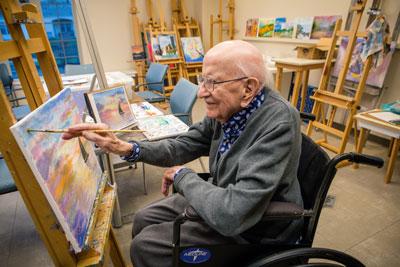
In his retirement, Fletcher finds it essential “to be doing something that I feel has projection, has potentially some lasting value.” He had done some writing before his retirement, but at age 80 he began authoring books, and has since published nine, including theological essays, a fictionalized account of the writing of the Gospel of Luke, a nonfiction work based on his father’s life, a memoir titled “My First Hundred Years: A Life on Three Continents” in which he shares memories of his Princeton experience, and a true love story that chronicles Martha’s life and their final years together as she experienced Alzheimer’s disease. He continues to write, often penning poetry, such as “Autumn Song” (see below.) He has also become a prolific painter in oils, and the walls of his apartment are lined with his colorful work. Exercise, including time on his recumbent elliptical bike, and caring for his rescue cat, Tootsie, are part of his daily routine.
10. Words of Wisdom
Asked if he had advice for Tigers of today, Fletcher’s answer sprang from the love of language and literature that began in his “fairyland” days at Princeton: “Being in communion with minds and spirits from previous generations, right up to the present time, is something to remember and treasure.”
10.6 Love of Family
The .6 is a bonus celebration of the next generations of Fletchers, beginning with Don and Martha’s six children, who often accompany him at Reunions: Donna Poole, Sylvia Fletcher *75, Tom Fletcher, Marilyn Keith, Alan Fletcher ’78 and Larry Fletcher-Hill ’81. His extended family includes more Tigers: daughter-in-law June Fletcher-Hill ’81, and nephews Robert Fletcher ’69, Don G. Fletcher ’72 and James Fletcher ’80 (and James’s wife, Nancy Howell Fletcher ’80). He also has 10 grandchildren and four great-grandchildren, and is expecting a fifth.
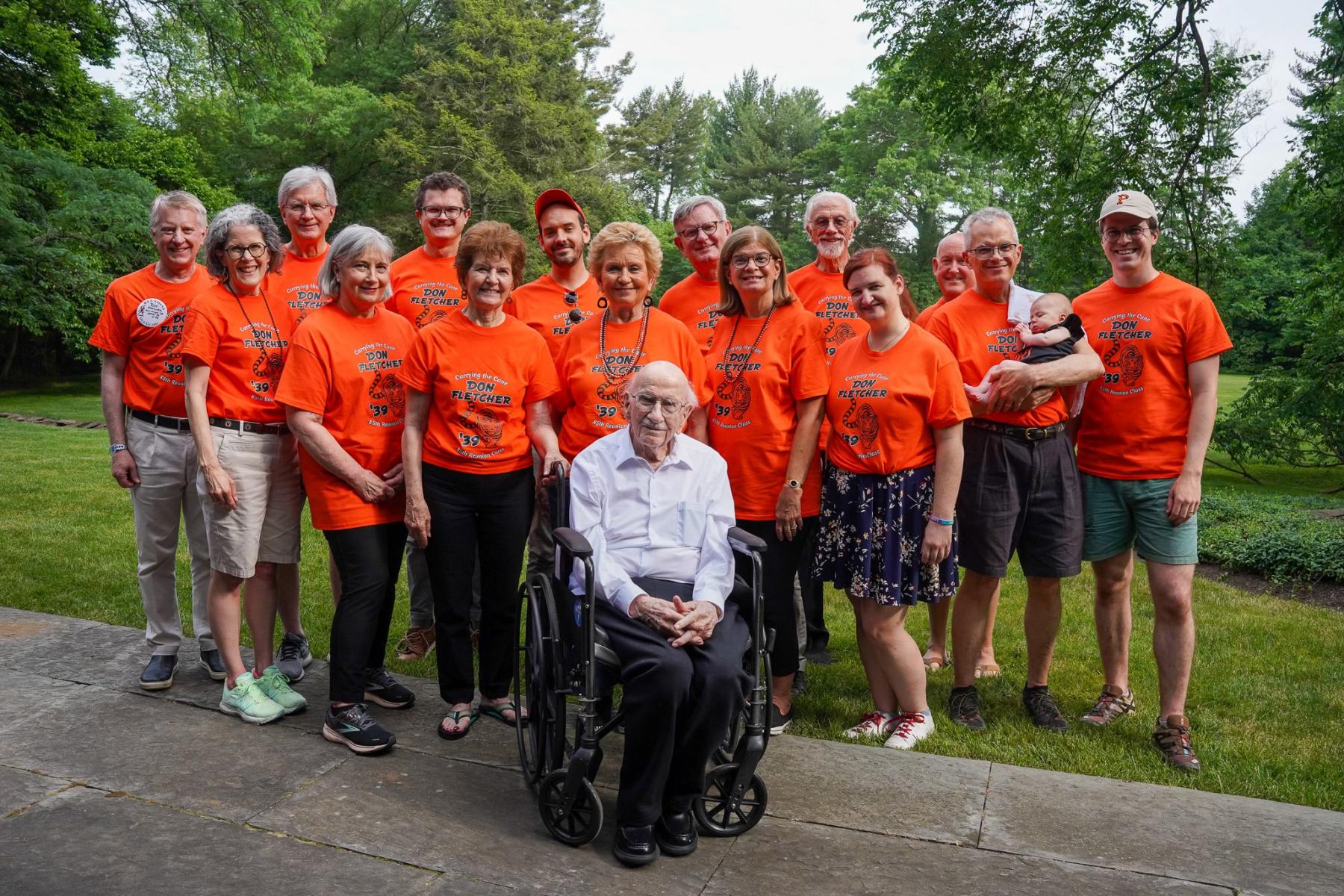
Autumn Song
Small row of trees under my window, you
Were just some tender shoots set out to grow,
Protected by small rings of stakes and wire;
And now the sharpening October air
Has turned your green to copper in this light
Of late October. I can feel your change,
Which is mine, too. So, we will go along
In autumn’s rhythm, glad that, under God,
All things of nature’s world of time and place
Have their significance, however small;
And so do I, whose time is growing late,
But not too late, my Lord. Your gracious hand
Is holding all the threads my being knows
Weaving them now in your autumnal plan.
— Donald R. Fletcher, Oct. 25, 2024
Don Fletcher ’39 *51
Fletcher family portrait with Don, age 1, in 1920. From left: his father, Archibald; his brother, Archie; Don; his sister, Elsie; and his mother, Jessie. Photo courtesy of Don Fletcher
